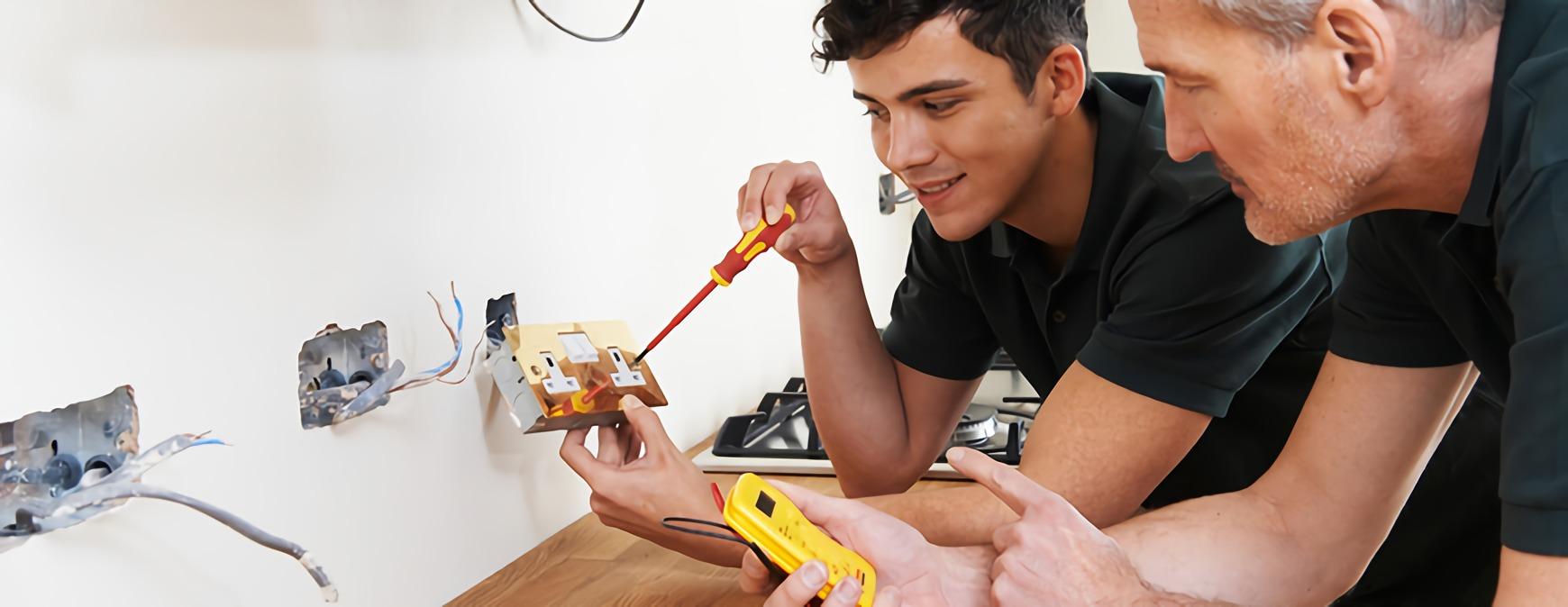TWS is a Great Training Option for Everyone
Learn more about how we can prepare you to advance your career.
You need a certain type of knowledge to become an electrician. You will learn what tools to use for which jobs, how to residential and commercial wiring, and what type of clothing to wear while on the job. Because working with electricity can be dangerous, vocational schools put a high priority on teaching students proper safety procedures during their career training. The Occupational Safety and Health Administration has some important safety tips that you will want to keep in mind at all times when installing, repairing or maintaining electric devices, wires or circuits.
1. Don’t Go Beyond Your Training and/or Qualifications
If you do not have the training needed to handle a particular task, don’t take it on. While
2. Never Assume Wires are Safe
Always assume that wires are energized, even if the wires appear insulated or are down. 1
3. Avoid Water
Never operate electric equipment of any kind or attempt to repair any type of electric device you are standing in water. Inspect a client’s electronic equipment if it is wet before attempting to power it up.
Have You Considered a Career in the Skilled Trades?
Fill out the form to recieve a no obligation info packet.
4. Use Personal Protective Equipment
Always use appropriate personal protective equipment, including safety glasses, safety shoes, insulated gloves and flame resistant clothing.
5. Use Insulating Protective Equipment
This equipment is not the same as personal protective equipment. It includes insulating live line tools, rubber blankets, rubber hoods and line hoses. 2
6. Use Fall Protection Equipment
Use fall protection equipment when working four or more feet above the ground. This equipment should be inspected before each job to ensure that it is completely free from defects or damage. 3
7. Check Every Client’s Location for Hidden Safety Hazards
Before beginning work in a client’s home or office, check for serious electric hazards. These include warm outlets and switches, overloaded electric outlets and extension cords running over a carpet or doorway. You will also want to make sure that ground fault circuit interrupters have been installed in kitchen areas, bathrooms, basements and outdoor areas and that the building has arc fault circuit interrupters to protect electrical outlets. 4
8. Always be Careful
Always be careful when working with electricity.
In Summary
Make sure you are familiar with appropriate electrical safety procedures and follow them at all times. Using the right safety equipment, following safety rules and working in a steady, cautious manner will protect you, your co-workers and your clients from serious accidents.
1 – https://www.osha.gov/Publications/electrical_safety.html
2 – https://www.osha.gov/SLTC/etools/electric_power/personal_protective_equipment.html
3 – https://www.osha.gov/SLTC/etools/electric_power/ppe_fallprotectionequipment.html
4 – http://www.nfpa.org/safety-information/for-consumers/causes/electrical/electrical-safety-in-the-home/electrical-safety-tips
This blog has been labeled as archived as it may no longer contain the most up-to-date data. For a list of all current blog posts, please visit our blog homepage at https://www.tws.edu/blog/







